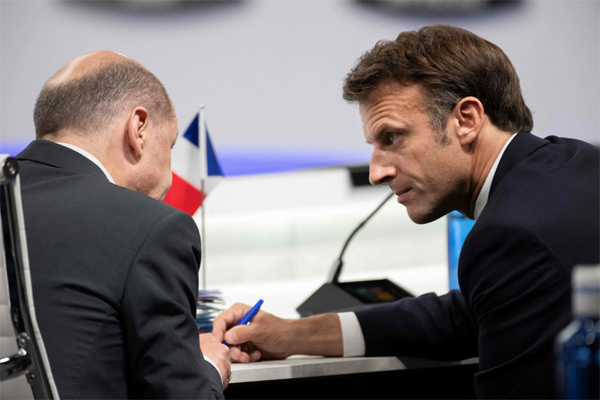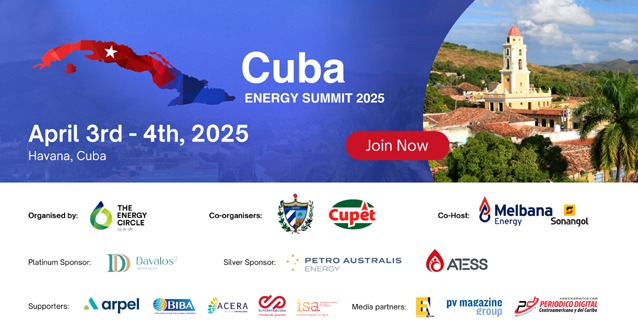
By Lionel Laurent
The smell of natural gas rarely gets thought of as a recession risk in Europe.
Yet International Monetary Fund researchers this week listed exactly that as one of several potential bottlenecks that could aggravate the pain of a major European Union gas supply crisis, as seemingly small differences in the practice of gas odorization for safety reasons would slow the flow of precious energy.
Other risks include limited supply links between some countries, uneven levels of gas storage across Europe ahead of what could be a brutal winter, and a reluctance by some governments to take politically difficult decisions such as delaying the closure of nuclear plants in Germany or the tremor-prone Groningen gas field in the Netherlands to diversify away from Russian energy.
These stresses make Europe all too vulnerable to a form of energy blackmail by Russia — the source of about 40% of the EU’s gas consumption — as Vladimir Putin seeks to exploit cracks in Western opposition to his invasion of Ukraine. Moscow has already cut gas to a handful of countries including Poland, Denmark and the Netherlands. A full cutoff could result in the EU economy losing as much as 2.65% of gross national expenditure, according to IMF researchers.
How can the EU get ahead of this threat? One plan floated by the European Commission on Wednesday is to prod countries down an unpopular but necessary road of demand reduction. By calling for an initially voluntary 15% cut in natural gas use by member states, the idea is to entrench a sense of collective action and sacrifice — similar to the energy sobriety proposed by French President Emmanuel Macron’s administration.
This is logical, but it’s also a very blunt tool that could erode unity rather than strengthen it.
Reliance on Russian gas varies greatly by country: A pan-EU cut of 15% relative to average pre-invasion levels would offset a halt to Russian pipeline imports, according to Brussels-based think tank Bruegel. But required cutbacks at the member-state level would range from zero to a whopping 54%. If fines start being issued by Brussels to enforce cutbacks, EU squabbles could rise from a grumble to a roar.
Instead, carrots, not just sticks, should be wielded to encourage cooperation — ideally in the form of a “grand bargain,” reckons Bruegel’s Georg Zachmann.
Such a bargain would involve not just a focus on demand but on supply. Beyond securing new pipeline and LNG supplies from abroad, EU leaders need to look to each other to take tougher decisions for the common good. Delaying the closure of nuclear plants, pumping more Groningen gas and burning coal for emergency purposes would be politically unpopular but would serve to reduce dependence on Russia and increase gas storage, at least in the short-term.
Necessary demand reduction would also be softened by pooling energy and financial resources. Money could pay for earthquake-proofing houses in Groningen, for example. And in the spirit of the EU’s united response to Covid-19, it should also support vulnerable households: Price increases have already raised the cost of overall per-capita consumption in the bloc by 160 euros a month on average, according to the European Commission. Assistance could take the form of assembling a compensation fund for financially vulnerable households financed by joint EU borrowing.
This kind of grand bargain makes sense, especially as both France and Germany — the twin engines of EU policy-making — face challenges in their energy transition. France isn’t dependent on Russian gas, but its nuclear plant portfolio is in disrepair and the state is proposing to nationalize utility Electricite de France SA at a cost of around $10 billion. Germany, meanwhile, is facing a true “Lehman moment,” as a gas crunch punishes its industry and the likes of Uniper SE.
Yet such an effort would require strong leadership, which has been in short supply. The tendency so far has been to pass national measures to dull the pain of inflation, rather than send a more difficult message of reducing demand while increasing cooperation, or abandoning long-held principles on nuclear.
EU leaders such as Macron and Germany’s Olaf Scholz need to invoke not just the “blood, sweat and tears” of wartime sacrifice, but also the call for solidarity that would diffuse the burden and resist Putin’s pressure — the crisis calls for sovereignty as well as sobriety. Until then, the odor of natural gas will smell too much like defeat.
______________________________________________________________
Lionel Laurent is a Bloomberg Opinion columnist covering digital currencies, the European Union and France. Previously, he was a reporter for Reuters and Forbes. Energiesnet.com does not necessarily share these views.
Editor’s Note: This article was originally published by Bloomberg, on July 21, 2022. All comments posted and published on EnergiesNet.com, do not reflect either for or against the opinion expressed in the comment as an endorsement of EnergiesNet.com or Petroleumworld.
Use Notice: This site contains copyrighted material the use of which has not always been specifically authorized by the copyright owner. We are making such material available in our efforts to advance understanding of issues of environmental and humanitarian significance. We believe this constitutes a ‘fair use’ of any such copyrighted material as provided for in section 107 of the US Copyright Law. In accordance with Title 17 U.S.C. Section 107. For more information go to: http://www.law.cornell.edu/uscode/17/107.shtml.
energiesnet.com 07 21 20022











